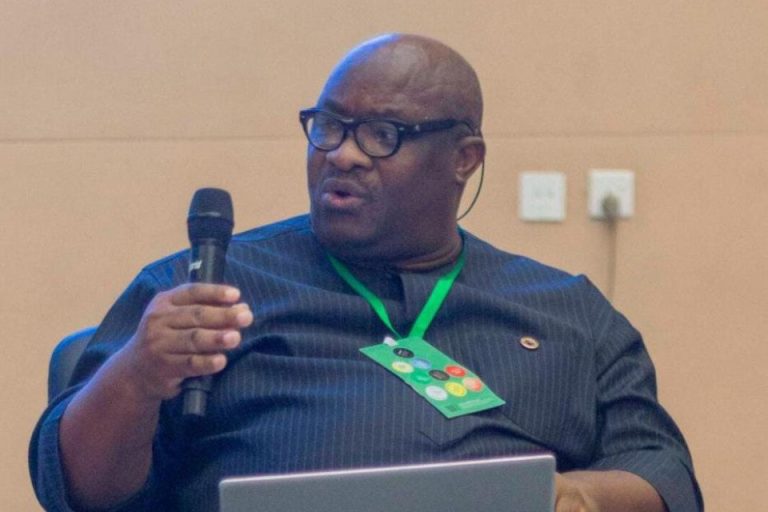A Federal High Court in Abuja has ruled that the refusal of the National Assembly to disclose information requested from it by a non-governmental organisation, HEDA Resources Centre, including the amount approved and allocated for the renovation of the National Assembly Complex, not only defeats the purpose of the Freedom of Information (FOI) Act, 2011, but encourages corruption and financial recklessness.
Justice Emeka Nwite stated this while delivering judgment in a suit brought by the Incorporated Trustees of HEDA Resources Centre against the National Assembly over the Federal legislature’s failure to respond to the organisation’s December 17, 2021, application for information, which HEDA claimed contravened the FOI Act.
In his judgment upholding HEDA’s claims, the judge delivered a resounding endorsement of the FOI Act, describing it as “the foundation for open system of governance in Nigeria”.
He added that the Act “is important to the healthy functioning of our society and would directly impact the quality of life of people residing in Nigeria. It would foster an open and participatory system of governance where the government, public and private institutions contribute to and benefit from healthier, more transparent collaborative governance.”
HEDA filed its motion on notice on March 28, 2022, asking the court to issue an order of mandamus compelling the National Assembly to supply the information it requested as contained in its request dated December 17, 2021, namely:
• The proposal, assessment and procedure employed by the National Assembly and the Federal Capital Development Authority (FCDA) in arriving at the initially reported N37 billion for the renovation of the National Assembly Complex;
• The actual amount approved and allocated for the renovation of the Complex as at the time of the request; and
• The amount already disbursed for the renovation of the Complex as at the time of the request.
Delivering judgment in the suit, Justice Nwite first upheld the objection raised by HEDA’s lawyer, Mr. Saidu Muhammad Lawal, to nine paragraphs in the National Assembly’s counter-affidavit on the ground that the paragraphs contravened Section 115 of the Evidence Act, 2011.
The judge said a careful examination of the paragraphs shows that they are in gross violation of Section 115 of the Evidence Act, particularly the portions which state that every affidavit must contain only a statement of facts and circumstances to which the witness deposed, adding that the National Assembly’s counter affidavit did not just contain conclusions but made legal conclusions. He consequently struck out the offending paragraphs.
On the argument by the National Assembly’s lawyer, Mr. Charles Yoila, that HEDA did not serve them with a pre-action notice in line with Section 21 of the Legislative Houses (Power and Privileges) Act, 2017, Justice Nwite said the courts have in plethora of cases held the importance or essence of pre-action notice to mean that the notice is to allow the proposed defendant time to consider whether to make reparation to the intending plaintiff or not, adding that “The purpose of serving pre-action notice on a party is that such a party is not taken by surprise to allow the party to have adequate time to deal with the claim against it.
He said although it was not in dispute from the records before the court that HEDA did not serve the required pre-action notice, it would seem too easy to come to a conclusion that the organisation failed to fulfill the condition precedent in commencing the action, thereby robbing the court of the jurisdiction to entertain the suit.
Citing Sections 1(1) and 20 of the FOI Act, Justice Nwite said the wording used in the Act “means that any Act, Law or Regulations that seeks to impinge the strict operations of the Freedom of Information Act shall not stand especially when the party before the court is seeking to enforce his or her right to access or request information whether or not in any written form as provided for in the Freedom of Information Act, 2011.”
According to him, “lawmakers never intend to make any law that will be unreasonable” in the light of Section 4(2) of the Constitution which gives the “National Assembly the power to make laws for the peace, order and good government of the Federation or any part thereof”, adding that it would be unreasonable for the National Assembly to make any law that would have an “inconvenient result or create disorderliness to the government of the Federation or any part thereof.”
The judge stressed that the implementation of Section 21 of the Legislative House (Powers and Privileges) Act would not only create an unreasonable result and disorderliness in the enforcement of the right to access information, but would also be a total negation of the intent and purpose of the FOI Act.
Insisting that the provisions of the FOI Act take precedent over the Section 21 of the Legislative House (Powers and Privileges) Act, he noted that the National Assembly’s argument would mean that HEDA will have an unenforceable cause of action by the time it complies with Section 21 of the Legislative House (Powers and Privileges) Act, which provides for three months pre-action notice before commencing an action against the National Assembly since suits instituted under the FOI Act have to be filed within 30 days. The judge therefore rejected the argument of the National Assembly on the issue.
On the National Assembly’s contention that the suit was brought outside the 30 days period allowed by the FOI Act, the judge recalled that on March 23, 2022, when he heard HEDA’s motion ex parte seeking leave of the court to initiate the suit, he had granted the application and extended the time within which it could do so by seven days from that date and that the organization subsequently filed its motion on notice on March 28, 2022 – with the seven days.
In deciding the substance of the suit, Justice Nwite noted that the “FOI Act affects everyone, every issue and every aspect of daily life. The Freedom of Information is the foundation for an open system of governance in Nigeria. It is important for the healthy functioning of our society and would directly impact the quality of life of people residing in Nigeria. It would foster an open and participatory system of governance where the government, public and private institutions contribute to and benefit from healthier, more transparent collaborative governance. Therefore, the Freedom of Information Act, 2011 was enacted clearly with the intention of making public records and information freely available to any member of the interested public. This, no doubt, is to expose public institutions to openness and accountability in respect of their basic dealings and decisions on issues of interest to the public.”
He said although there are certain information that are exempted from disclosure, the National Assembly did not rely on any of the provisions exempting it from disclosing the information sought, but stated in its Counter-Affidavit that the proposed renovation of the National Assembly is exclusively the responsibility of the FCDA.
The judge said, having carefully examined the records, there was absolutely nothing before the court that shows that the proposed renovation of the complex is exclusively the responsibility of the FCDA, which HEDA is aware of, especially as the reason for denying the information requested is not among those contemplated in the sections exempting certain information.
He held that the information sought by HEDA from the National Assembly as evident in its letter cannot be denied as the organization is only asking for the proposal, assessment, and procedure employed by the National Assembly and the FCDA in arriving at the initially reported N37 billion for renovation of the complex, the actual amount approved and allocated for the renovation as well as the amount already disbursed as at the time of the request.
According to the judge, “the information sought are the simplest and most harmless information that an Applicant is expected to get from a public institution like the Respondent. Where an institution like the Respondent denies or is deemed to have denied an Applicant the instant information sought, it will not only defeat the very purpose of the Act but encourage corruption and financial recklessness. The Respondent has no valid reason to deny the Applicant the information in line with the FOI Act.”
The judge therefore ruled that HEDA’s suit had merit and issued an order of mandamus directing the National to supply the information requested by HEDA as contained in the letter dated December 17, 2021, namely:
• The proposal, assessment and procedure employed by the National Assembly and the Federal Capital Development Authority (FCDA) in arriving at the initially reported N37 billion for the renovation of the National Assembly Complex;
• The actual amount approved and allocated for the renovation of the Complex as at the time of the request; and
• The amount already disbursed for the renovation of the Complex as at the time of the request.





